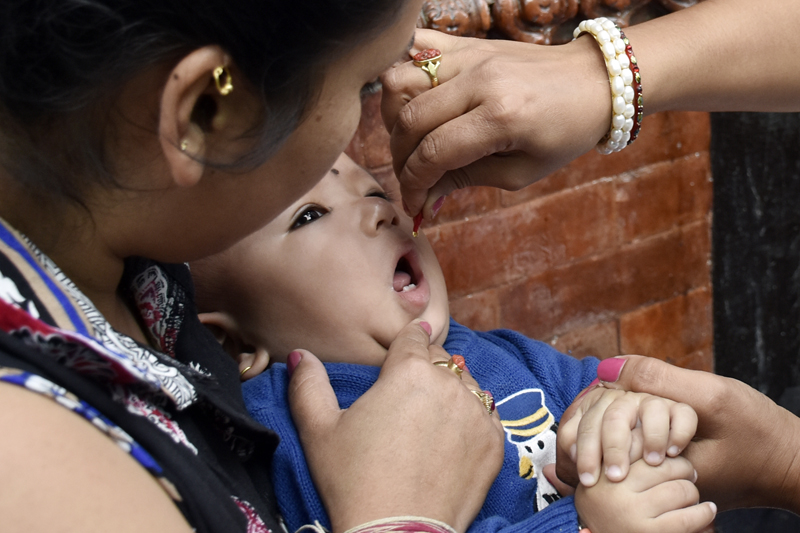Coronavirus threat affects immunisation campaign
Kathmandu, April 15
Millions of Nepali children will not get immunised for measles and rubella on time this year and will miss out on intake of Vitamin A drops and de-worming tablets as well, as the government has temporarily suspended all programmes related to vaccination, vitamin supplementation and worm control in the wake of the threat posed by the novel coronavirus disease.
At least three million children aged between six months and five years were supposed to get Vitamin A drops on April 18 and 19. On the same days, around 2.35 million children aged one to five years were supposed to take de-worming tablets, which are essential to remove parasites that can cause malnutrition and reduce children’s ability to grow and learn.
“These campaigns have been postponed in view of the increasing number of coronavirus cases in the country,” said Jhalak Gautam, chief of Child Health and Immunisation Section at Family Welfare Division of the Department of Health Services.
Conducting these campaigns, according to Gautam, is difficult amidst the lockdown when the government is facing difficulty in mobilising volunteers. “Also, people have to maintain proper distance to help prevent the coronavirus spread,” he said.
The government has said it would re-launch these campaigns after the situation improves.
Temporary suspension of these campaigns means millions of children will also miss out on the second phase of measles and rubella mass vaccination programme, which began in Bagmati, Gandaki, Karnali and Sudurpaschim provinces on March 14. These programmes have now been postponed until further notice.
The government had launched the first phase of the measles-rubella immunisation programme on February 13 in provinces 1, 2 and 5. Under the programme, two doses of measles vaccine are administered to infants aged nine months to 15 months. Measles can cause serious complications including blindness, encephalitis, severe diarrhoea, ear infection and pneumonia while rubella causes irreversible birth defects.
“Immunisation is the most cost-effective way to control and eliminate the vaccine-preventable diseases that contribute to childhood illness and death,” said Gautam. Despite having safe and effective vaccine for over 50 years, measles cases have surged worldwide over the years. According to the United Nations Children’s Fund, the disease claimed more than 140,000 lives worldwide, mostly among children and infants, in 2018 — all of which were preventable. According to the World Health Organisation, measles particularly infects the poor, especially malnourished children and those with reduced immunity.
The government administers vaccines to avert 11 diseases in children every year under the National Immunisation Programme. These diseases are tuberculosis, polio, Japanese encephalitis, diphtheria, tetanus, pertussis, hepatitis B, Hib, measles, rubella and pneumococcal disease. About 620,000 children receive these shots annually. Delay in administration of vaccines may lead to resurgence of diseases.
A version of this article appears in e-paper on April 16, 2020 of The Himalayan Times.






